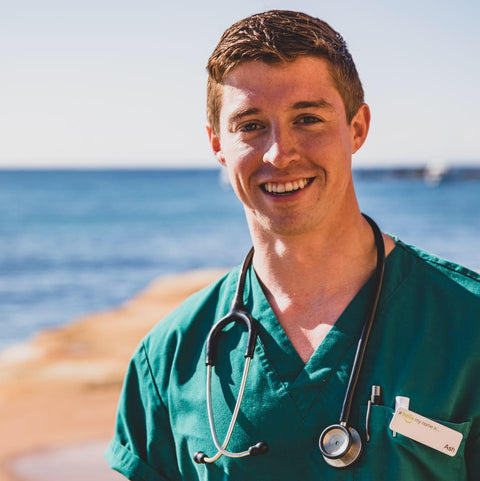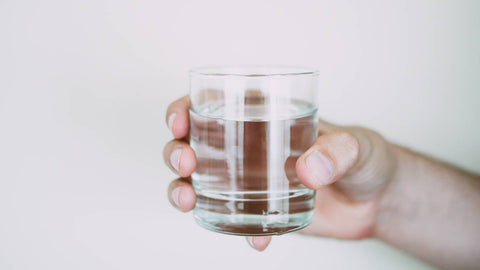Get Physical with your Mental Health
October is Mental Health Month
Dr Ash Bowden (Doctor Do More), an emergency doctor on the Central Coast is an active advocate of physical activity and the strong correlation it has with mental health benefits. With 1 in 5 Australians being affected by mental health illness, he is helping to shed some positive light on improving mental health and wellness through physical activity.
Doctor Do More- promoting the importance of physical activity on mental health
It’s tempting to preach the benefits of activity on our physical health, there’s an overwhelming body of evidence for it, but it’s not our physical health that gets us out of bed in the morning. In this article we’ll look at the power of being active in the struggle to get out of bed and get the most out of life!
- Why Mental Health
- Mental Health Benefits You Might Not Know
- Mental Health Not Mental Illness
Why Mental Health
In the second century AD, Roman poet Juvenal wrote “mens sana in corpore sano” – a healthy mind in a healthy body – understanding the importance of mental and not just physical health. Over the years this perspective may have regressed but now becomes pertinent with the knowledge that 29.2% of the population are estimated to experience a common mental disorder (anxiety or depression) throughout their lifetime1. It’s safe to say we all know someone that has suffered or is suffering such an illness, that someone may be you.
With that in mind it begs the question why are we still not good at talking about it, asking the honest “Are you ok?” and answering it too. In healthcare, why are we not good at managing it? You may have experienced a doctor reach for their prescription pad without hesitation, and of course there are appropriate times for this, but we’re underestimating the power of exercise, with or without medication.
Mental Health Benefits You Might Not Know
You’re improving your mental health from the first step
Research shows that it is all intensities of physical activity that have an impact on mental health, from as early as 5,000 steps a day2. The more you do the better it is, a dose-response association, but don’t believe you have to be running marathons to start feeling the benefits!
When you feel lost - a single bout of exercise can help!
Book an exercise class near you, reach out to a trainer to get you active, join a friend for a brisk walk.
We can all appreciate the ebbs and flows of our mental health, why not tackle those ebbs with something active rather than the usual social withdrawal? Stubbs and Rosenbaum write “when a patient is undergoing a period of heightened symptoms, they may be able to use exercise as a tool for short-term symptom relief”
Similar & combined response with medication
Multiple trials have shown exercise programmes can improve symptoms of depression and anxiety as much as antidepressant medication. When combined with antidepressant medication this was more powerful, reporting higher levels of remission, greater impact on symptoms and the benefit of improved physical function3
Note: As impressive as exercise is for the fight against mental illness, we always recommend consulting with your doctor before making any changes to your medication or treatment.
Mental Health Not Mental Illness
Mental health isn’t just the absence of illness, it’s our enjoyment of life, ability to cope with stress and sadness, fulfilment of goals and a sense of connection to others. Take steps (excuse the overused pun) to improve and maintain your mental health.
- Connection to Others
Whether you’re a ‘people person’ or not, a sense of belonging and connection keeps us alive. A top tip for depression is to talk to a stranger every day! Find an activity with or around people: a walking group, exercise class, yoga studio or gym with a good community atmosphere and see where the combination of exercise and social support takes you.
- Fulfilment of Goals
Top 5 walks on the Central Coast, build up to your ‘Bird of Paradise’ pose or swim across Toowoon Bay. Set a goal, get active and achieve it. Active goals give us a sense of purpose like nothing else, even if it’s a target for next week or next month you’ll be amazed the impact it can have.
- Enjoyment of Life
Exercise gives us energy. Just 10 minutes of moderate activity right now will improve tonight’s sleep, reducing fatigue tomorrow and helping you find time and energy for the things that make you happy…in my case more exercise. It’s theorised that through increased levels of serotonin, reduction of inflammation and growth of the hippocampus (part of a brain involved in feeling and reacting) exercise helps us feel better.
Fuelling your body to get the most out of exercise
Keeping the body fuelled is essential to being able to get the most out of your exercise regime and your life in general.
If you are time poor like most of us, then Activate Foods might be an ideal solution for you. Activate Foods offers a range of healthy and delicious ready-made meals, which constantly change to give you variety and are sure to tickle your taste buds. There are fresh and frozen options and meals are single serve. All products are gluten free with vegan and vegetarian options available too. All meals are also approved by leading local nutritionist, Nicky Saliba founder of Eatsense.
Getting the Coast more active and improving mental health and wellness
Doctor Do More has created a free directory of physical activity – a place where people can search surf schools, bicycle hire shops, local gyms, yoga studios, running clubs, water activity centres...the list goes on. Check it out today
Do you provide a physical activity?
‘’Do More’’ is all about helping local businesses to grow whilst improving the physical activity levels of the local community. Dr Ash Bowden is calling out for new local providers to sign up to this fantastic community health initiative.
The ‘’Do More’’ directory is currently completely FREE to join and utilise for providers and finders.
https://do-more.live/
More details:
Web: www.do-more.live
Email: agbowden@do-more.live
IG: @doctordomore
References/Acknowledgements
A big thank you to Brendon Stubbs and Simon Rosenbaum for their book “Exercise-Based Interventions for Mental Illness”. This provided further inspiration and information for this article.
1Steel, Zachary et al. “The global prevalence of common mental disorders: a systematic review and meta-analysis 1980-2013.” International journal of epidemiology vol. 43,2 (2014): 476-93. doi:10.1093/ije/dyu038
2 Bernard, Paquito et al. “Dose response association of objective physical activity with mental health in a representative national sample of adults: A cross-sectional study.” PloS one vol. 13,10 e0204682. 24 Oct. 2018, doi:10.1371/journal.pone.0204682
3 Netz, Yael. “Is the Comparison between Exercise and Pharmacologic Treatment of Depression in the Clinical Practice Guideline of the American College of Physicians Evidence-Based?.” Frontiers in pharmacology vol. 8 257. 15 May. 2017, doi:10.3389/fphar.2017.00257


